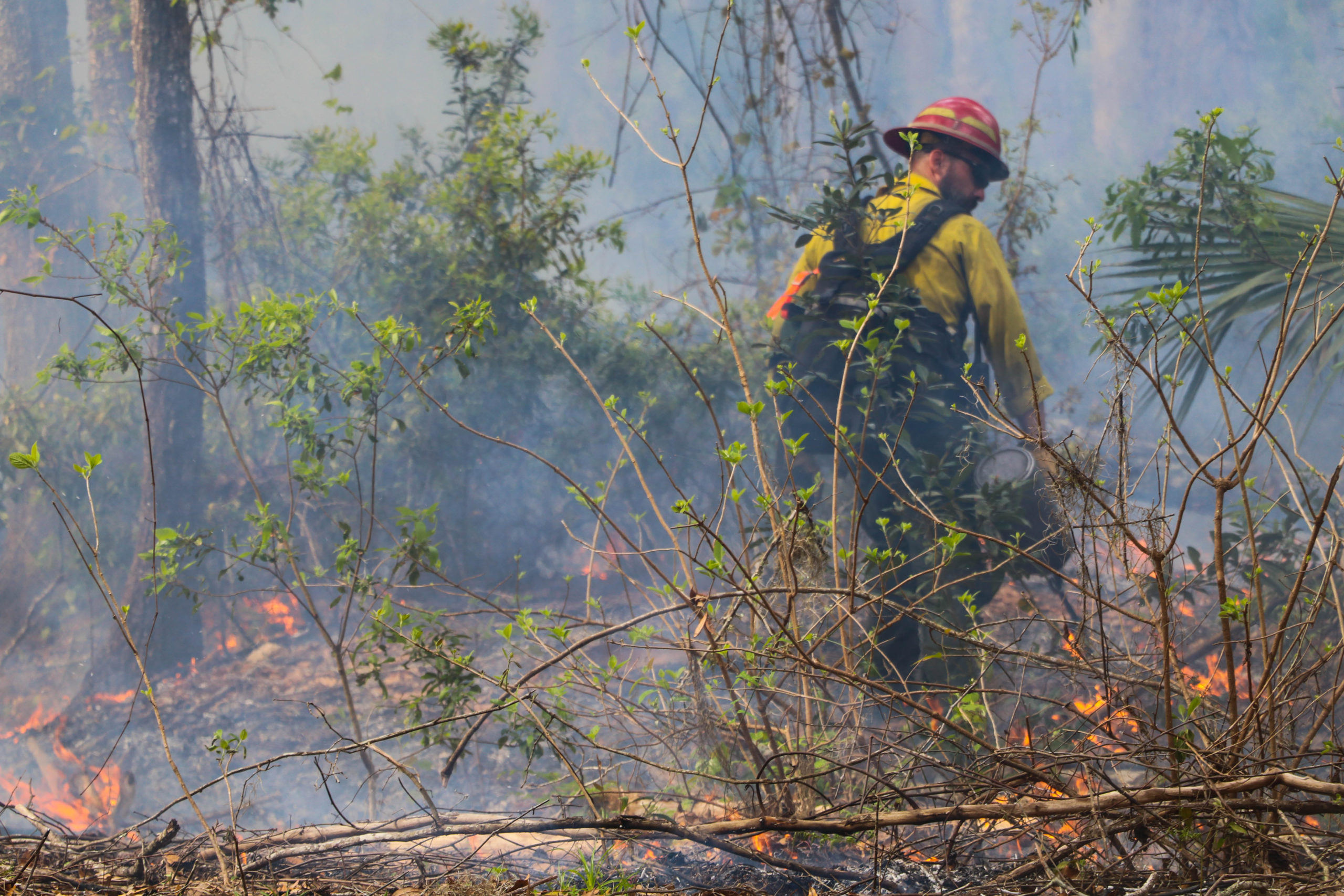With ferocious wildfires again sweeping across Western states, like the Calder fire that forced evacuations around Lake Tahoe, officials are looking to the Southeast for possible answers.
Several states in the West are moving to adopt fire policies similar to Florida and other Southern states for controlled burns, NPR reports.
Those policies include training programs and liability protection for people conducting the burns. Between 1998 to 2018, 70% of all controlled burning in the country was in the Southeast.
“We have this generational gap in fire knowledge in the Western U.S. that we’re trying to rebuild now,” Lenya Quinn-Davidson, a fire adviser for the University of California Cooperative Extension, told NPR. “But Florida and the Southeast still have it.”
Florida passed a law in the early-1990s to encourage prescribed burns by setting up a certification system for burn managers, which requires candidates to get special training.
According to NPR, With that certification, burners have protection from liability lawsuits in the rare event a burn gets out of control unless there was “gross negligence.” In total, 11 Southern states have prescribed burn certification programs.
Morgan Varner, director of fire research at Tall Timbers in Tallahassee, Fla., told NPR many private landowners burn every other year. As long as the weather and wind conditions are safe, burn managers can get a required permit in 15 minutes over the phone.
Prescribed burn planning in Western states can take weeks or even months. About half of the land in California is privately owned, and landowners have had little support to conduct controlled burns.
However, Western states are beginning to adopt similar burn manager programs. New Mexico and Oregon have both passed laws establishing burn certification programs, according to reports.
In California, legislators are currently considering a bill that would protect burners from being charged for firefighting resources if a burn escapes.
An earlier version of the bill would have copied the Southeastern states’ civil liability protections unless burners were grossly negligent. However, that liability protection was scrapped after opposition from the insurance industry.
“California is, in some ways, in the dark ages with prescribed fire,” Varner told NPR.
Image: A firefighter lights a controlled fire in St. Marks National Wildlife Refuge in Crawfordville, Fla. in March 2019 (Laurel A Egan / Shutterstock.com)


